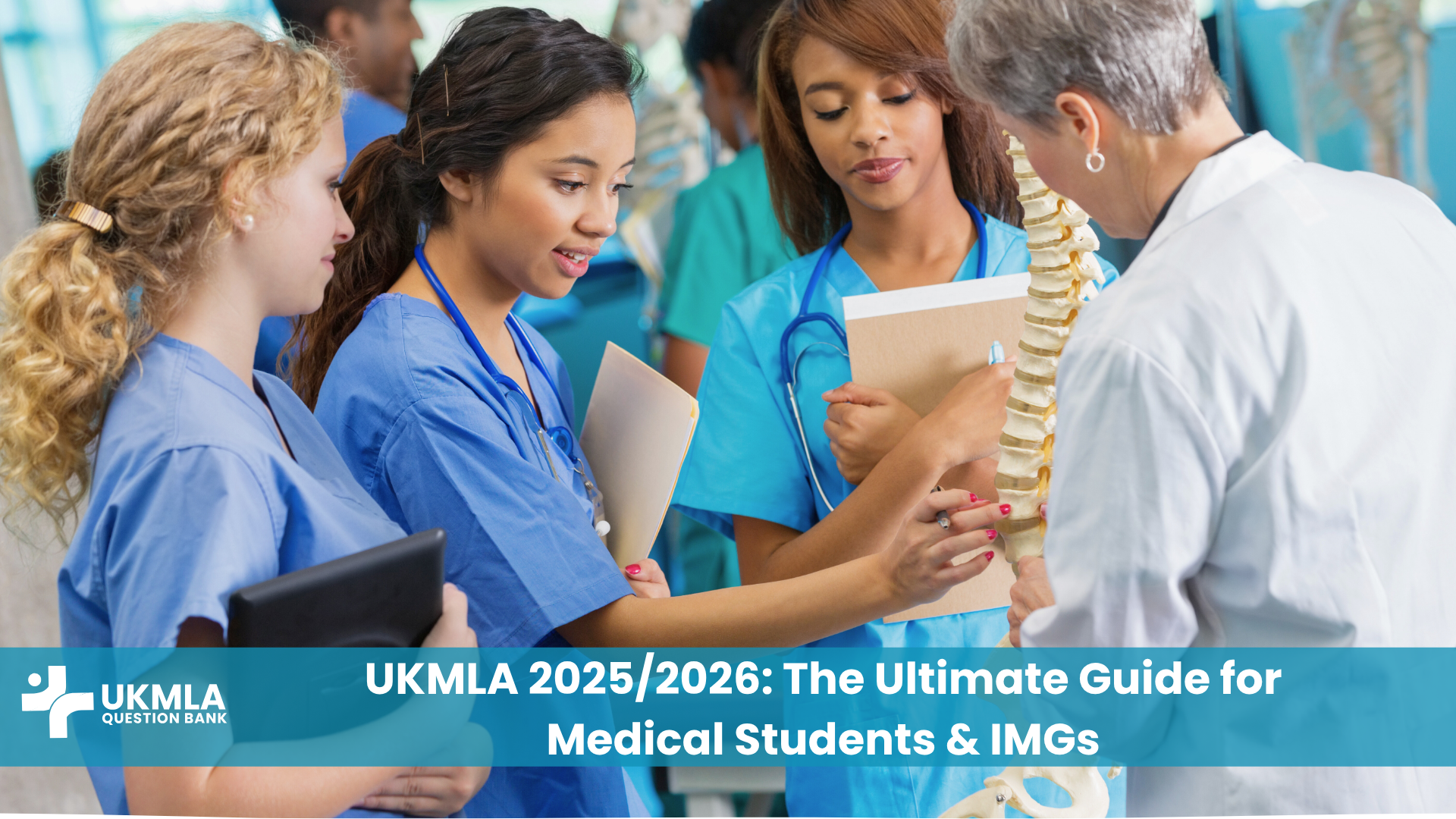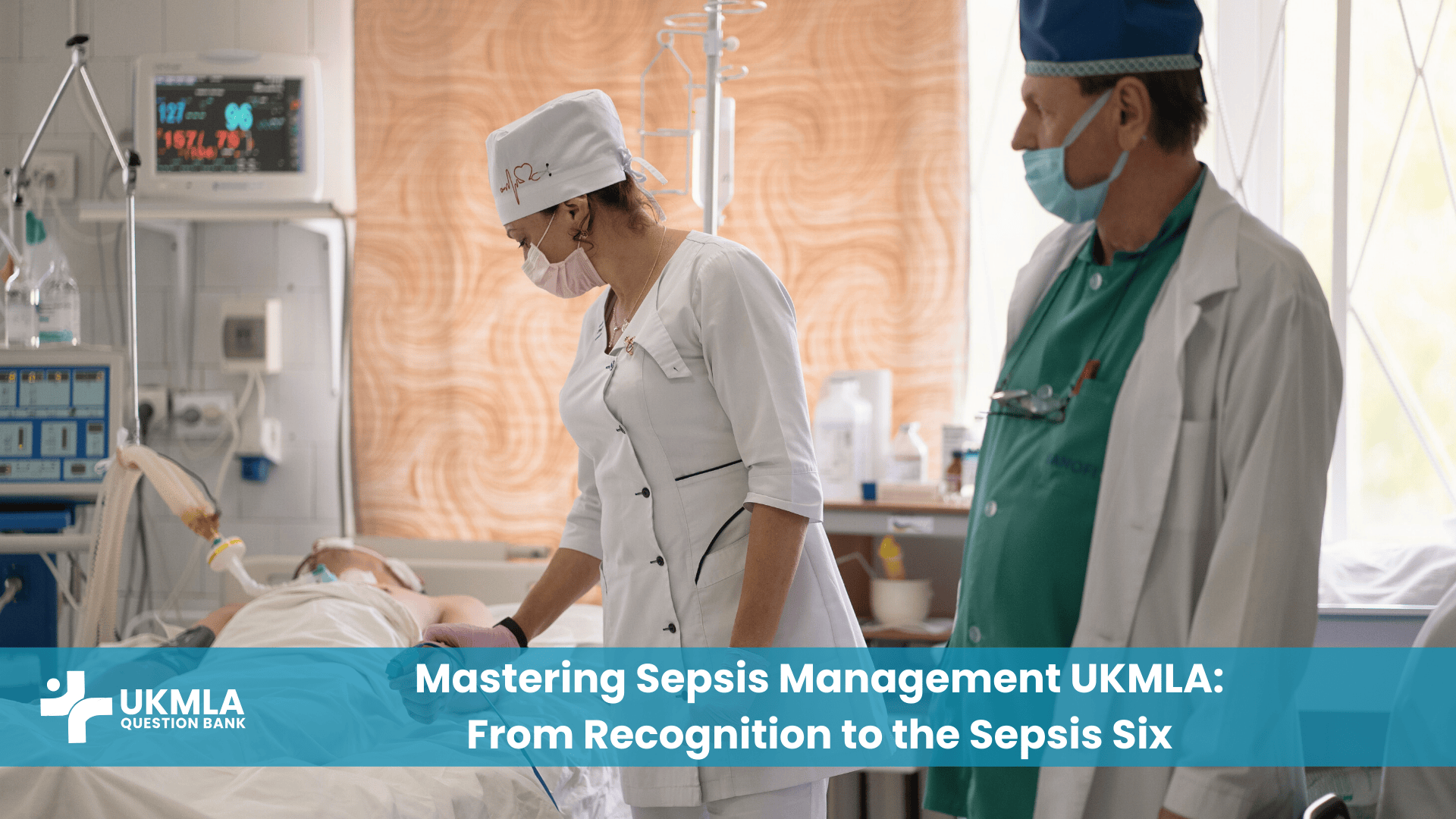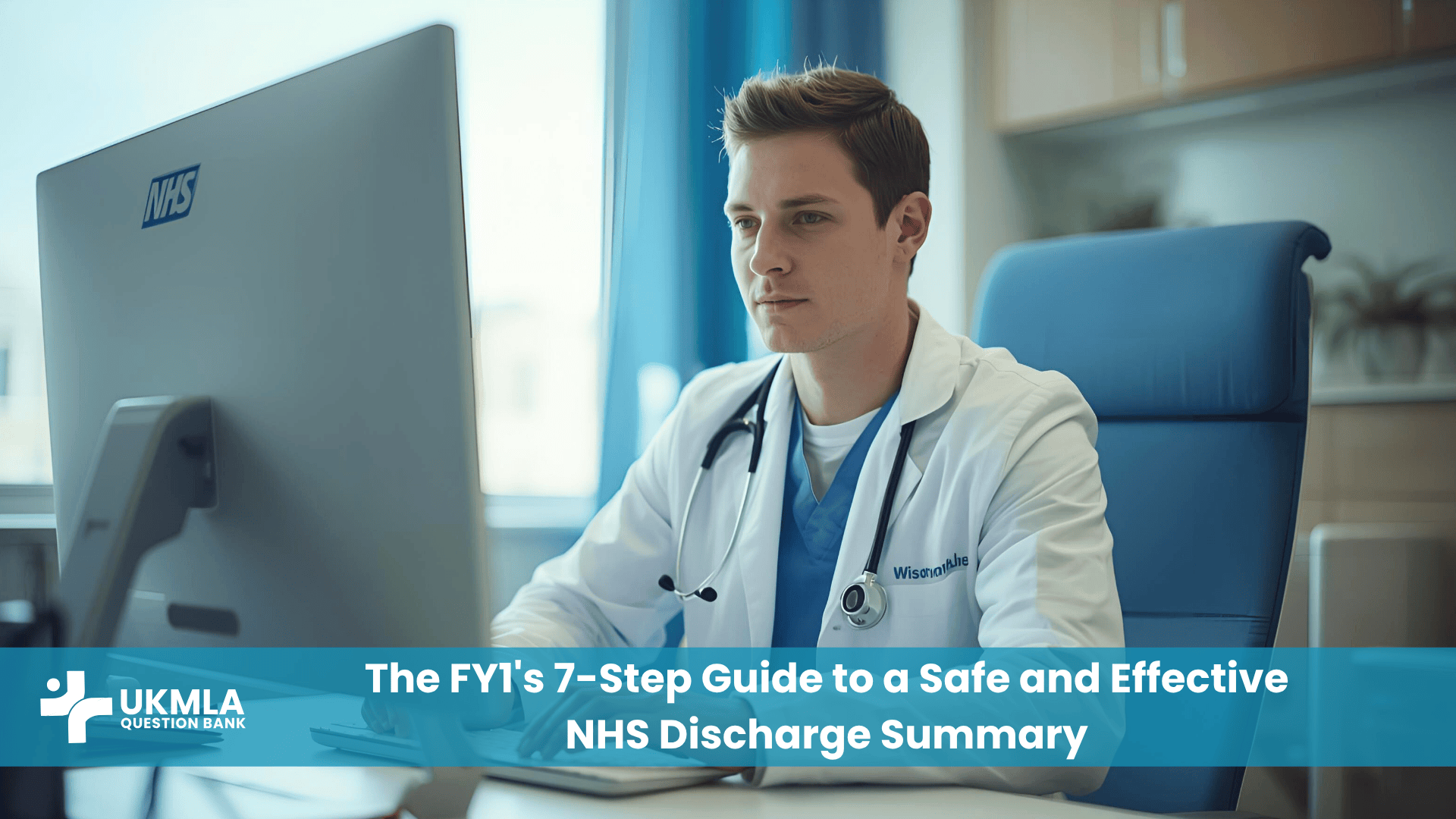The journey to becoming a registered doctor in the United Kingdom is a significant undertaking, marked by years of rigorous study, clinical training, and a series of crucial assessments. In this landscape, the UK Medical Licensing Assessment (UKMLA) has emerged as a cornerstone. Understanding the role of UKMLA is essential for every aspiring medical professional, whether you are a UK medical student navigating your degree or an International Medical Graduate (IMG) seeking to practise in the NHS.
The UKMLA is more than just another examination; it’s a fundamental component of the General Medical Council’s (GMC) framework for ensuring that all doctors entering UK practice meet a common, high standard of competence. This article will explore the multifaceted role of UKMLA in your progression from medical aspirant to a licensed UK doctor, highlighting its importance at various stages of your career pathway.
The UKMLA: Establishing a National Standard for Practice
At its core, the role of UKMLA is to serve as a national benchmark. As detailed in our previous piece, “[Why the UKMLA Was Introduced: Understanding the GMC’s Aims],” the GMC implemented this assessment to create a single, objective standard for all new doctors. This means:
For UK Medical Students: The UKMLA is integrated into your university finals. Passing it signifies that you have met the national requirements for knowledge and skills expected of a new doctor, as outlined in the GMC’s Outcomes for graduates. It’s a key part of what “[UKMLA for UK Medical Students: What Your University Expects]”.
For International Medical Graduates (IMGs): The UKMLA replaces the PLAB test and serves as the primary means to demonstrate that your medical education and abilities align with UK standards. Our “[UKMLA for International Medical Graduates (IMGs): A Step-by-Step Guide]” outlines this specific pathway.
This standardized approach ensures that every doctor, regardless of their training origin, has proven their “readiness for safe practice” before they are granted a licence.
Key Roles of the UKMLA in Your Medical Journey
The role of UKMLA extends through several critical phases of your journey:
1. Gateway to Graduation (for UK Medical Students)
For students in UK medical schools, successfully completing the UKMLA components (the Applied Knowledge Test – AKT, and the Clinical and Professional Skills Assessment – CPSA) is becoming a mandatory requirement for graduation.
Integration with Finals: Your university will incorporate these assessments into your final year examinations.
Demonstrating Core Competencies: Passing the UKMLA confirms that you have acquired the essential competencies outlined in the GMC UKMLA Content Map (your “[Blueprint for Success]”).
Ensuring National Standards: It ensures that your medical degree not only meets your university’s criteria but also a nationally recognized standard for medical practice.
2. Prerequisite for GMC Registration
This is perhaps the most direct and significant role of UKMLA.
Licence to Practise: Passing both the AKT and CPSA components of the UKMLA is a non-negotiable step towards obtaining provisional (for UK graduates) or full (for eligible IMGs) registration with the General Medical Council. Without GMC registration, you cannot legally practise medicine in the UK.
Assurance of Competence: The UKMLA provides the GMC with assurance that an individual has met the necessary standards in terms of applied knowledge, clinical skills, and professional behaviours before they are entrusted with patient care. Understanding the “[Eligibility Criteria for UKMLA: A Comprehensive Checklist]” is the first step here.
3. Facilitating Entry into the UK Foundation Programme (UKFP)
For most UK medical graduates, and some eligible IMGs, the next step after GMC registration is the UK Foundation Programme.
Meeting UKFP Entry Requirements: Having passed the UKMLA (as part of your degree for UK students, or as a standalone assessment for IMGs) and obtained GMC provisional registration are key requirements for entry into the UKFP.
Preparedness for F1: The UKMLA is designed to assess readiness for the responsibilities of a Foundation Year 1 (F1) doctor. Therefore, passing it indicates you are prepared for the demands of this crucial training period.
4. Standardizing the Entry Point for All Doctors
A fundamental role of UKMLA is to level the playing field.
Consistency for Patients and Employers: It ensures that patients and NHS employers can have confidence that all new doctors, whether from the UK or overseas, have met a comparable standard of assessment.
Fairness to Applicants: It provides a clear and transparent pathway, with all candidates being assessed against the same criteria outlined in the MLA Content Map.
5. Upholding and Enhancing Patient Safety
The ultimate role of UKMLA is to protect patients.
Focus on Safe Practice: The entire assessment, from its content to its scoring (as detailed in “[Decoding the UKMLA: Structure, Format, and Scoring Explained]”), is geared towards ensuring that only those who can practise safely are granted a licence.
Assessment of Professionalism and Ethics: The UKMLA doesn’t just test medical knowledge; it also assesses crucial professional attributes like communication, ethics, and teamwork, which are vital for patient safety.
6. Guiding Medical Education and Continuous Professional Development
While primarily an assessment, the UKMLA also plays an indirect role in shaping medical education.
Informing Curricula: The MLA Content Map influences how UK medical schools design their curricula to ensure graduates are prepared.
Focus for IMG Preparation: For IMGs, the Content Map provides a clear syllabus, guiding their study and helping them align their existing knowledge with UK expectations.
Foundation for Lifelong Learning: The competencies assessed in the UKMLA form the bedrock of knowledge and skills upon which doctors build throughout their careers via continuous professional development.
7. Supporting International Comparability and Mobility
While the UKMLA is specific to the UK, its robust nature and clear standards can also contribute to the international recognition of UK-licensed doctors. It demonstrates a commitment to high standards of medical assessment.
How the UKMLA Impacts Different Stages of Your Journey
Let’s consider the role of UKMLA at specific points:
Early Medical School (UK Students): While you won’t be sitting the UKMLA immediately, understanding its future role should encourage you to engage deeply with your curriculum from day one, knowing that the knowledge and skills you acquire will be directly relevant.
Final Years of Medical School (UK Students): The UKMLA becomes a primary focus. Your university will guide you through the integrated AKT and CPSA components. Success is crucial for graduation and moving to the Foundation Programme.
Post-Graduation (IMGs): The UKMLA is your main hurdle to clear for GMC registration. Your preparation will be intensive and self-directed, focusing on aligning your international training with UK standards. Resources like “[UKMLA Question Bank: An Essential Resource for Medical Aspirants]” and “[UKMLA Mock Exams: Your Ultimate Key to Unlocking Top Scores…]” become vital.
Applying for GMC Registration: Your UKMLA pass certificate (or confirmation for UK graduates) is a key document in your application portfolio.
Starting F1 or First NHS Post: The knowledge and skills validated by the UKMLA will be put into practice daily. The assessment aims to ensure you are ready for these initial clinical responsibilities.
The role of UKMLA is therefore not a single event but a continuous thread woven through the later stages of medical education and the initial steps into professional practice in the UK.
Frequently Asked Questions (FAQ) on the Role of the UKMLA in Becoming a UK Doctor
No. While passing the UKMLA (both AKT and CPSA) is a crucial requirement, you also need to meet other criteria, such as an acceptable primary medical qualification (for IMGs), evidence of English language proficiency, and fitness to practise declarations.
The UKMLA is a licensing exam that assesses the core knowledge and skills required for a newly qualified doctor to practise safely (around F1 level). Specialty exams like MRCP (Membership of the Royal Colleges of Physicians) or MRCS (Membership of the Royal College of Surgeons) are postgraduate exams taken later in training to demonstrate competence in a specific specialty.
The UKMLA is primarily a pass/fail assessment for licensure. Currently, the specific score is not typically used for ranking in specialty applications. Your performance in the Foundation Programme, postgraduate exams, audits, research, and interviews will be more significant for specialty selection.
For most IMGs seeking general GMC registration, yes. However, very experienced specialists might explore alternative pathways like specialist registration via CESR (Certificate of Eligibility for Specialist Registration), which has different requirements and may not involve the UKMLA. This is a distinct route.
The UKMLA assesses core competencies for entry-level practice. While it provides a strong foundation, ongoing learning, experience within the NHS, and postgraduate training are essential for developing into a fully rounded and experienced UK doctor.
Once you pass both components of the UKMLA, there is typically a timeframe (e.g., two years from passing the CPSA) within which you must apply for GMC registration. Always check the current GMC guidelines.
Even for many non-clinical roles that require a medical degree (e.g., some roles in medical research, pharmaceuticals, or medical administration), GMC registration is often preferred or required. Therefore, the UKMLA would still play a key role.
Yes, indirectly and directly. The “Areas of Professional Knowledge” domain in the MLA Content Map includes aspects relevant to the UK health system. Furthermore, clinical scenarios in both AKT and CPSA are set within the context of UK practice, often implying NHS settings and protocols.
As a new national standard, its importance is set to remain high. The GMC may refine the assessment over time based on feedback and evolving healthcare needs, but its central role as the gateway to UK medical practice is established.
Focus on understanding the “why” behind medical concepts (not just rote learning), practice applying knowledge to clinical scenarios, hone your communication and practical skills, and always keep patient safety and ethical practice at the forefront of your learning.
Conclusion: The UKMLA as Your Essential Credential
The role of UKMLA in your journey to becoming a UK doctor is pivotal and multifaceted. It acts as a critical quality assurance mechanism, a gateway to GMC registration, a facilitator for entry into postgraduate training, and a testament to your readiness for safe and effective practice within the NHS.
Whether you are a UK medical student or an IMG, embracing the UKMLA and preparing diligently for it is an investment in your future. By understanding its purpose and meeting its standards, you are not just passing an exam; you are validating your competence and taking a decisive step towards a fulfilling medical career in the United Kingdom. The journey may be demanding, but the UKMLA ensures that all who embark on it are well-prepared for the responsibilities and rewards that lie ahead.




